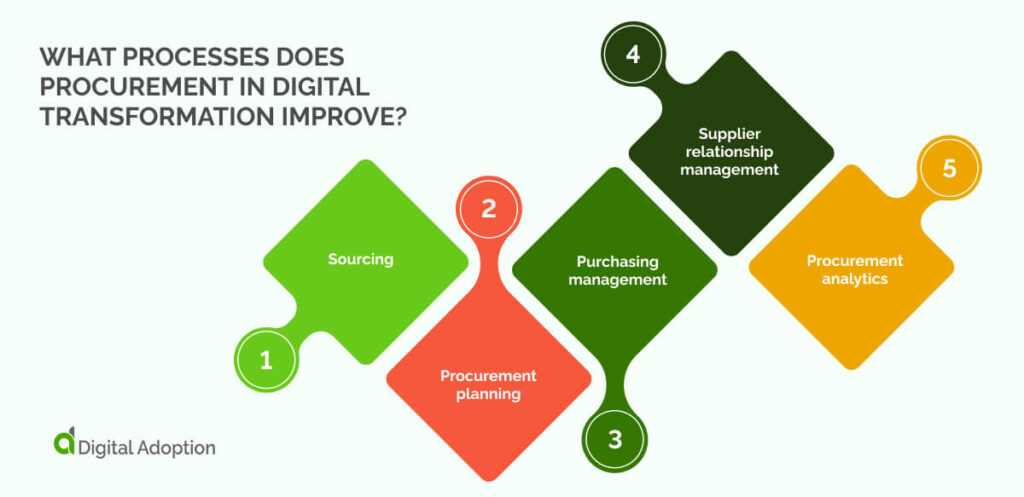Businesses are under increasing pressure to run effectively while upholding quality standards in the fast-paced commercial environment of today. Conventional paper-based procurement procedures are now antiquated obstacles that waste money and slow down operations. This has caused the rise of dedicated procurement software companies, which present brand new courses of action to change the method by which corporations acquire products and services. Given the ever-growing complexities in the marketplaces, businesses seeking to refresh their purchasing procedures and acquire competitive advantages over other companies now rely on these suppliers of technology.
- Bridging the Gap Between Manual Processes and Digital Excellence
Companies that provide procurement software act as essential linkages between contemporary digital processes and conventional purchasing practices. They know that many businesses continue to largely use manual approval systems and spreadsheets, in addition to paper forms, which are prone to errors as well as delays. These software programs develop user-friendly tools to enable companies to gradually transition their outdated systems to new, sophisticated digital systems.
Their solutions include strong automation capabilities that staff members may readily embrace while preserving recognizable workflows. The process of change becomes seamless and organic, enabling businesses to adopt new technology without interfering with day-to-day operations or overburdening employees.
- Creating Comprehensive Ecosystems for Seamless Business Operations
Companies that provide procurement software nowadays provide comprehensive platforms that link different corporate operations into cohesive ecosystems. They are not being offered as stand-alone tools, but as complete systems, and are linked to purchasing operations with financial reporting, links to vendors, inventory control, and compliance controls. This is a comprehensive approach that will eliminate data silos and bring clarity to the entire procurement process.
A flow of information between systems can result in more efficient collaboration between departments and reduce misunderstandings and duplication of effort. By playing a critical role in the coordination of all the activities of the firms, these connected platforms can assist the firms to operate more efficiently and make informed decisions using current and complete data.
- Revolutionizing Cost Management Through Intelligent Analytics
One of the most important contributions procurement software firms give to contemporary enterprises is cost control. Sophisticated analytics engines built into their systems monitor expenditure trends, spot areas for cost reduction, and offer useful information for budget optimization. These tools automatically show locations where better terms might be obtained through negotiation, compare vendor prices across several vendors, and alert to anomalous spending.
To utilize the possibilities of the unstructured purchasing data, the finance teams can use higher-order reporting tools to transform them into valuable strategic planning analytic data. It provides previously unknown businesses with insight into their spending patterns, enabling them to make data-driven decisions that maintain quality standards, with a significant financial impact.
- Strengthening Vendor Relationships Through Digital Collaboration Platforms
Strong supplier connections are essential to corporate success, as procurement software companies understand. Through specialized portals where both parties can exchange information, monitor orders, and effectively address problems, their systems let businesses and their vendors communicate more effectively. With these digital environments, transparency will create accountability and trust in corporate relationships.
Because of the introduction of the overall scorecards and feedback systems, buyers will be able to see the performance of the suppliers, and vendors will be able to clearly understand what is required and what is expected. The given collaborative method will minimize misunderstandings and fast-track solutions to the arising problems; it will also lead to building stable partnerships, which will be advantageous to every stakeholder of the procurement life cycle.
- Ensuring Regulatory Compliance Through Automated Monitoring Systems
Businesses that operate across several jurisdictions and industries now find it more difficult to navigate complicated regulatory obligations. To eliminate this concern, the suppliers of procurement software companies include compliance monitoring in their procurement digital transformation process. The systems also maintain detailed audit records that address the requirements of the legal documents, along with determining any probable violations and automatically balancing the purchases to the regulatory requirements.
Purchases will be ensured to follow the set norms and processes through the inbuilt approval processes, and in any case of exceptions, staff are automatically alerted. Through compliance management or the proactive model, firms can potentially minimize their legal risks, avoiding expensive violations, as well as be confident that their procurement practices do not breach any relevant law or regulation.
- Accelerating Decision-Making Through Real-Time Data Accessibility
Making decisions quickly has become essential for preserving competitive advantage in ever-changing markets. Platforms that offer immediate access to vital purchase data from any place at any time are created by procurement software companies. Managers can check and approve purchases wherever they are, and dashboard screens give them important information and notifications in easily digestible formats through mobile interfaces.
By enjoying real-time reporting, one can easily respond immediately to any variation in the market or emerging needs because one is not faced with time lapses in the manual format of making data. It is due to this immediate access to information that organizations can seize opportunities and swiftly address issues with a reactivity and agility that has never been heard of.
- Scalable Solutions That Grow Alongside Business Expansion
Procurement software companies know that an organization evolves over time and requires a solution that is flexible to its constantly changing requirements and heightened complexity. The architecture of their platforms relies heavily on scalability, allowing organizations to expand their user bases, implement new features, and tackle new processes without necessarily redesigning their systems.
Minimal company setup requirements through to huge company requirements are being satisfied through a flexible design wherein technology investments can depend on to maintain their value as companies grow. Businesses may progressively deploy features thanks to modular architectures, which align system capabilities with organizational readiness and financial restrictions. Long-term investments are safeguarded by this scalable strategy, which also offers obvious avenues for future growth and improvement.
- Empowering Strategic Procurement Through Advanced Technology Integration
Providers of proactive procurement software companies are incorporating new technology into their procurement digital transformation, including machine learning, artificial intelligence, and predictive analytics. These emerging capabilities could assist companies to shift towards strategic procurement that anticipates need and optimises outcomes rather than responding to procurement. The intelligent systems can predict the pattern in demand, recommend the most appropriate order quantities, and identify any kind of interruption in the supply chain before it affects businesses in any way.
Routine chores are handled by automated workflows, allowing procurement specialists to concentrate on significant projects that increase the value of their companies. Procurement is now positioned as a strategic company activity rather than merely an operational need, thanks to technology advancements.
Conclusion
The way that contemporary firms handle supplier management and purchasing has been completely revolutionized by procurement software companies. These suppliers have reduced costs, eliminated waste, and provided fresh sources of competitive edge with innovative technological products. Their comprehensive solutions embrace every aspect of procurement activities and provide the capability and flexibility for future enlargement. As the digital economy continues to become increasingly complex, companies need to engage with experienced, knowledgeable procurement digital transformation companies in order to be competitive and successfully prosper in the long term.







